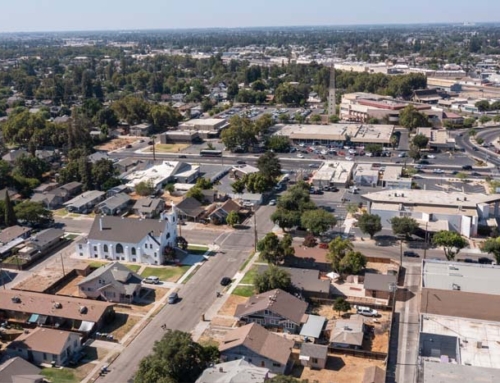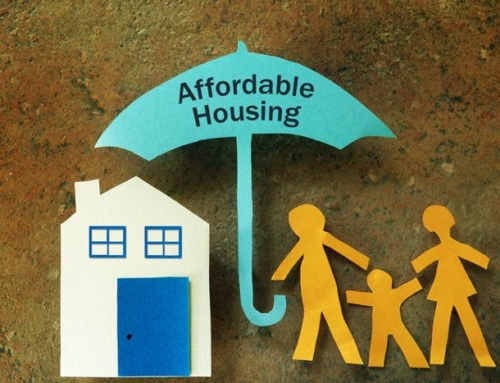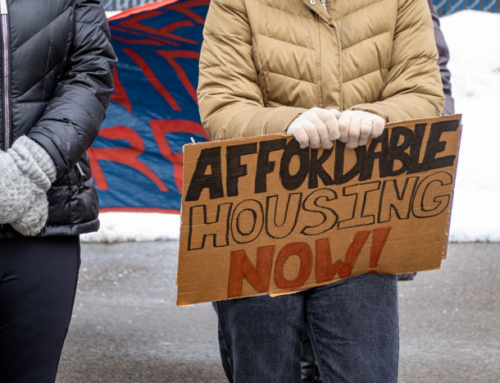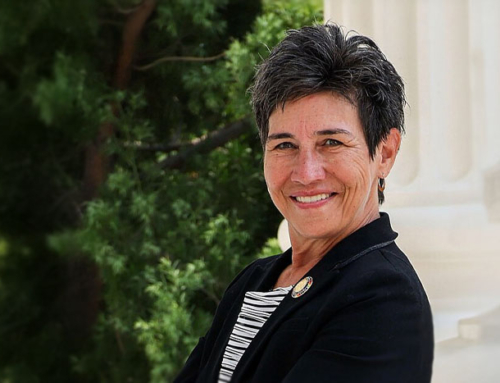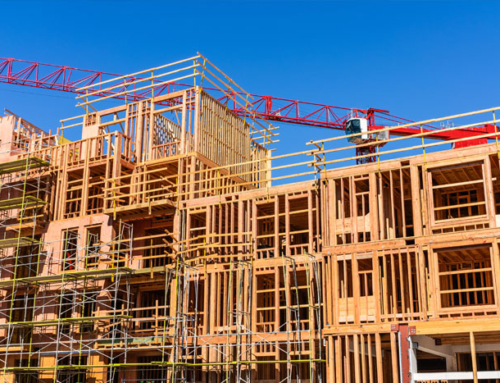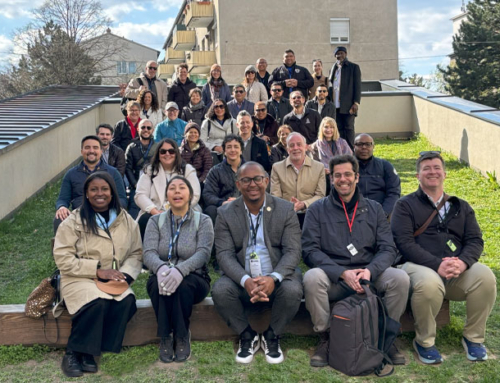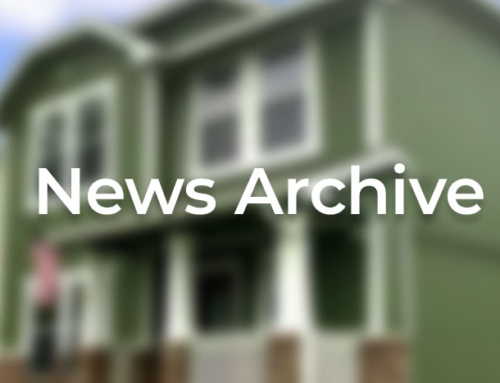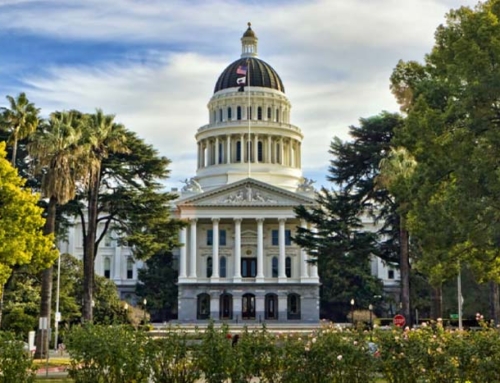California’s State Legislature passed a flurry of housing and homelessness bills by September 13, the last day of this year’s legislative session, despite multiple competing issues and deadlines.
The Governor has until October 13 to sign or veto bills passed by the Legislature. This year, the Legislature focused much of its energy related to housing on bills boosting production by removing regulatory barriers, incentivizing cities to plan for and approve housing production at scale, reducing costs, and creating financial tools to facilitate new construction.
Most notably, the Fast Track Housing Package aimed to make housing more affordable by slashing red tape, removing uncertainty, and drastically diminishing the time it takes to get new housing projects approved, permitted, and built. A number of bills additionally addressed rebuilding efforts in Altadena and Pacific Palisades as a result of the Los Angeles wildfires at the beginning of the year.
Key Bills Focused on Producing Housing, Promoting Equity, and Protecting Tenants
Multiple solutions to producing housing for all are awaiting the Governor’s signature, including:
- AB 507 (Haney, D-San Francisco), which streamlines the adaptive reuse of existing buildings by allowing such projects to be considered a “use by right” in all zoning areas, bypassing traditional conditional use permit processes. This bill establishes affordability standards and exempts certain projects from parking requirements to facilitate the conversion of underutilized structures into multifamily housing.
- AB 648 (Zbur, D-Santa Monica), which combats housing insecurity and homelessness at California Community Colleges (CCC) by streamlining the development of student and staff housing. This bill authorizes the CCC to build housing on property they own or lease—just as they do for educational facilities—while eliminating barriers that slow or prevent construction.
- AB 893 (Fong, D-Los Angeles) expands the eligibility for streamlined, ministerial review for mixed-income housing developments to include developments located in a campus development zone.
- AB 1445 (Haney, D-San Francisco) is complementary to AB 507, since many developers are unable to secure enough affordable financing to execute on the conversions due to costly upgrades and structural changes to allow for housing to be built. AB 1445 allows cities and counties to establish a “downtown revitalization and economic recovery financing district,” authorizing the use of incremental property tax revenue generated by investment in the commercial-to-residential conversion project, which will be used to finance these activities.
- SB 79 (Wiener, D-San Francisco), arguably the most controversial housing bill this session, requires cities to allow taller apartment and condo buildings near mass transit, including bus-rapid-transit stops and rail stations. Following much controversy, the bill now includes affordability restrictions, requirements to meet labor standards, and allows transit agencies to adopt zoning standards for district-owned property in a transit-oriented development zone.
- SB 838 (Durazo, D-Los Angeles) narrows the scope of the Housing Accountability Act by excluding mixed-use projects with any transient lodging, such as hotels and AirBnBs, from streamlined housing protections and ensuring that only long-term residential projects benefit. If passed, this would apply retroactively to pending projects as of January 1, 2025.
- Notable bills from the Fast Track Housing Package include:
- AB 712 (Wicks, D-Oakland) increases remedies against public agencies that violate the rights established in existing housing law.
- AB 920 (Caloza, D-Los Angeles) requires larger cities to utilize permit portals to streamline the housing application process.
- AB 1007 (Rubio, D-Covina) establishes time limits to act on permit applications.
- SB 489 (Arreguin, D-Oakland) requires all public agencies to post online the information necessary for a housing development application to be deemed complete.
SB 677 (Wiener, D-San Francisco), which aimed to improve SB 9 (Atkins), a landmark law passed in 2022 that streamlined the approval process for building second homes and duplexes on single-family lots, did not pass the Senate Housing Committee. It did receive an opportunity for reconsideration but can only be reconsidered in January 2026.
Bills aimed at promoting equity by addressing the homelessness crisis had a mixed record.
- SB 634 (Perez, D-Pasadena), the Homeless Rights Protection Act, is currently awaiting the Governor’s signature. It prevents the criminalization of people experiencing homelessness engaged in necessary day-to-day survival activities. SB 634 prohibits local and state authorities from imposing penalties, including jail time or fines, on unhoused individuals for acts related to their basic survival and protects those helping homeless individuals.
SB 16 (Blakespear, D-San Diego), which sets a goal of achieving functional zero unsheltered homelessness, failed to pass. The bill defined zero unsheltered homelessness as having sufficient housing options to accommodate at least 60% of a jurisdiction’s unsheltered homeless population and requires the state to develop annual reports regarding this goal. The bill would have also required the regions to expand their homeless habitation capacity until they achieve their 5-year housing inventory expansion target. The bill additionally would have established Round 7 of the Homeless Housing, Assistance, and Prevention (HHAP) Act, a program that supports regional coordination and local capacity to address homelessness challenges.
Bills that protect tenants focused on rent increases and fees.
- SB 21 (Durazo, D-Los Angeles) creates a nuance into California’s housing law by allowing limited unit reductions when converting aging SROs into more livable units, provided affordable replacements and tenant protections are enforced. It ensures affected tenants receive preferential access to new units and safeguards their housing stability.
- SB 36 (Umberg, D-Santa Ana) expands prohibitions on price gouging, covering rentals, hotels/motels, and evictions. This applies during a state of emergency or local emergency.
General Fund and Financing Solutions Promote and Produce Housing Stock
The legislature did not pass AB 736 (Wicks, D-Oakland), known as the Affordable Housing Bond Act of 2026, which would have placed a $10 billion general obligation bond on the June 2026 California ballot. The legislature did pass AB 417 (Carillo, D-Palmdale), which could potentially provide local and regional financing for housing. AB 417 improves the functionality and usefulness of Enhanced Infrastructure Finance Districts (EIFD) and Community Revitalization and Investment Authorities (CRIA) by streamlining administrative processes and providing other crucial clarifications to existing law. The bill also provides innovative solutions that could help fill the construction financing gaps for development projects.
SB 336 (Wiener, D-San Francisco), which revisited the long-debated battle over extending the property tax welfare exemption for residential rental property for low- and moderate-income households, is dead this session. Existing law provides a welfare exemption for low-income households; SB 336 would have extended this welfare exemption to moderate-income households.
Disaster Recovery
As California continues to grapple with the challenge of rebuilding after the disastrous Palisades and Eaton fires in Los Angeles earlier this year, several bills aimed at aiding disaster recovery have moved forward. This includes:
- AB 239 (Harabedian, D-Pasadena) establishes a state-led disaster housing task force to coordinate rebuilding efforts between state and local governments.
- AB 797 (Harabedian, D-Pasadena), the Community Stabilization Act, would allow qualified investors, such as nonprofits, to fund the purchase and management of residential properties, keeping land owned and operated by the community to protect residents from speculation in the wake of disasters. Further, the California Infrastructure and Economic Development Bank (I-Bank) would develop and manage this investment vehicle.
- AB 818 (Farias, D-Concord) prohibits local agencies from denying permit applications for rebuilding or repairing residential properties affected by a natural disaster, absent health and safety concerns. Agencies would be required to respond to applications within 45 days and prohibit certain fees.
Social Housing
The state is currently conducting a Social Housing Study per SB 555 (2023, Wahab, D-Fremont), which must be submitted by the end of the 2026 calendar year, representing an incremental approach. This session, Asm. Alex Lee’s reintroduction of AB 11 (Lee, D-Milpitas), the California Social Housing Act, did not move. The bill proposes establishing a California Housing Authority to develop, own, and maintain public housing. This proposal continues to be inspired by models in Singapore and Vienna, sparking broader debate over the state’s inability to properly finance its affordable housing production needs. However, any other major shift to a state-led housing development model will likely not be seriously considered until the reorganization to create a standalone California Housing and Homelessness Agency is complete, as any new big housing programs will likely fall under this agency.
California State Legislature will reconvene for the second half of the two-year session on January 5, 2026. Hundreds of bills are now on Governor Newsom’s desk for final action, and he has until October 13 to sign or veto all legislation. The LeSar team will continue to monitor these developments and update this article after this deadline has passed.
© LeSar Holdings/LeSar Development Consultants. All Rights Reserved. Please be advised that any republishing of copyrighted material provided by our organization, in whole or in part, requires prior written authorization. For permission, please reach out to [email protected]. We appreciate your understanding and compliance in upholding copyright laws.




